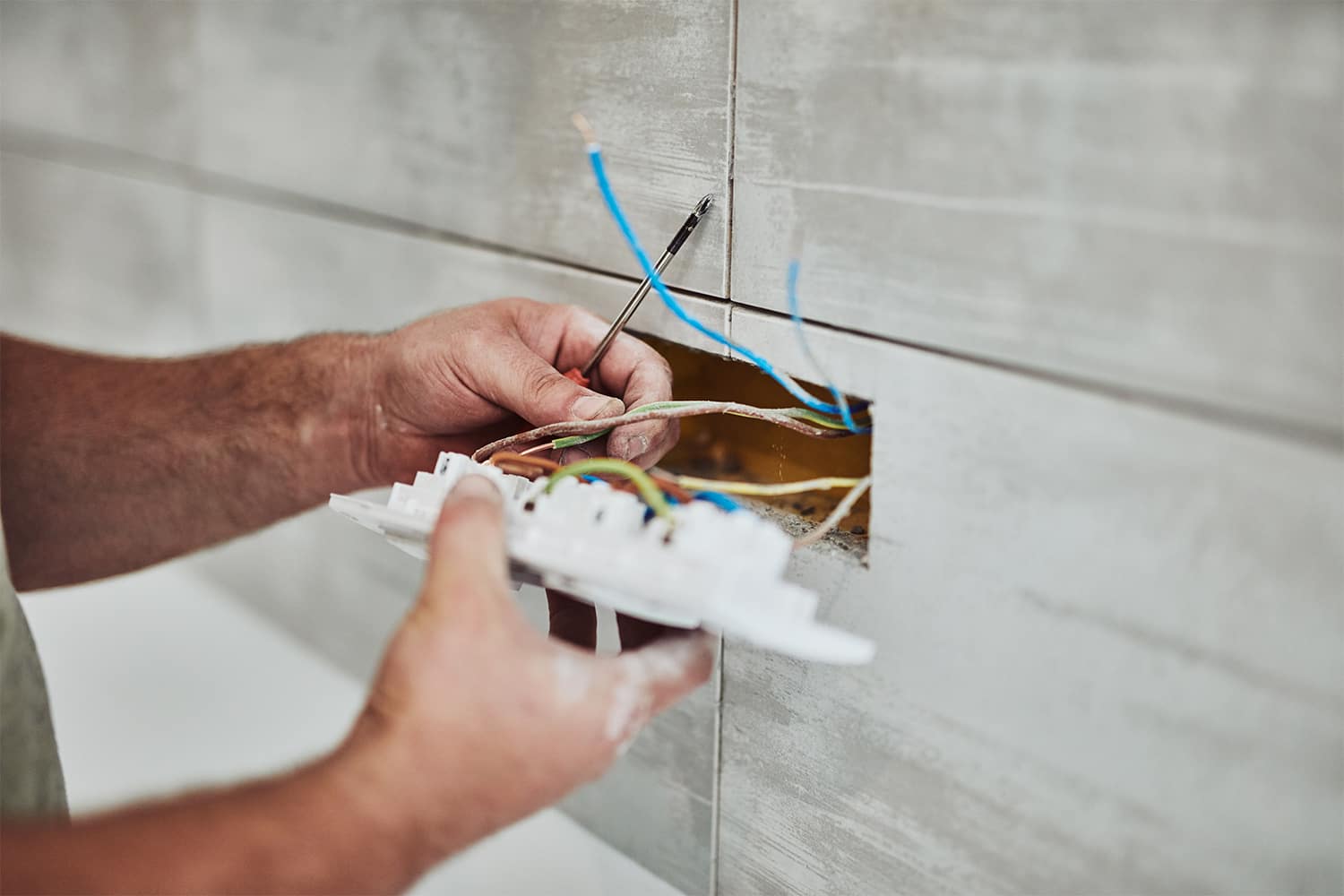As a homeowner, you often wonder about the cost of rewiring your house. While there is no definitive answer, as each case is different, some key factors can influence the total price, such as the age of the house, size, accessibility of the wiring system, and labor.
There must have been some telltale signs of problems with rewiring, which will be further addressed in the article. You must rewire your house if you notice recurrent issues to ensure your family’s and property’s safety.
Understanding Electrical Rewiring
Electrical rewiring involves replacing all or part of a house’s existing wiring system with new wires and components. This process is necessary when old wiring becomes outdated or damaged due to wear and tear. It ensures safety by preventing potential hazards such as electrical fires and shocks.
What are the Signs that Your House Needs Rewiring?
As a homeowner, you just don’t wake up one day and decide to rewire your house; you must have noticed recurrent issues with your electrical system that can pose a hazard to your family and property. Some of these signs include:
- An old house due to outdated wiring materials
- Lights Flickering in house
- Light bulbs burn out often, thus having to replace them every few days
- Frequent tripping circuit breakers
- Burning smell from the electrical outlets
- Outdated knob-and-tube wiring
- Frequently malfunctioning appliances
- Visible damage like frayed wires
- Scorch marks around outlets or switches
- Buzzing sounds from the socks
- Electrical shocks when you touch the switches
How Much Does it Cost to Rewire a House?
The cost of rewiring a house varies depending on several factors, but on average, you can spend as little as $2000 or as much as $7,000. Depending on the size and age of the house, this amount can go as high as $15,000.
Electrical wiring is priced by linear foot, and it is estimated that the cost of wiring a house per linear foot ranges between $0.15 and $3.50, excluding labor. Therefore, when wiring your home, you can estimate the cost by square feet in the ratio of 1:1. Therefore, a 3000-square-foot house will need approximately 3000 feet of wiring material.

Factors Affecting the Cost of Rewiring a House
The several factors that influence the cost of rewiring a house include:
Type of Rewiring Project
As a contractor, you need to understand the project when you take on rewiring. Does it involve part of the house, the whole house, a new house, or just upgrading the electrical panel and switches? The cost will vary depending on the type of project.
For instance, upgrading your electrical panels costs between $400 and $2,500. Replacing electrical outlets will cost approximately $125 per outlet, and if you are also replacing the GFCI (Ground-Fault Circuit Interrupter), it will cost $500 per outlet.
It’s wise to note that wiring a new house comes cheaper than rewiring an old house. This is because the wiring system is easily accessible in a new home, while you’d have to knock down walls to replace the wiring system.
The Size of the House
One of the main factors that affects the cost of rewiring a house is its size. Smaller homes require less wiring and electrical work, while larger houses may have more complex layouts and need more wiring and labor.
This is because rewiring is charged per square foot, so on average, expect to pay around $4,000-$12,000 for a 1,500-square-foot home.
The Age of the House
Older homes typically require more extensive rewiring as their electrical systems are often outdated and not up to current safety standards.
In these cases, it’s important to hire an experienced electrician who can assess the condition of your existing wiring and make recommendations accordingly. This may involve hiring a building contractor as you’d have to knock down walls as most of the wiring system is hidden in the walls.
As such, you’ll be required to do some slight home renovations. So, the overall cost of rewiring an old home will be high.
Labor
Labor costs can vary greatly depending on location and the experience level of the electrician hired.
While some electricians charge by the hour (typically between $50 and $300), others may offer flat rates for specific jobs, such as installing outlets or light fixtures. It’s best to get quotes from multiple contractors before making a decision.
Inspection and Permits
Before starting any rewiring project, obtaining the required permits from your local authorities is important. The work permit costs between $75 and $150, while the safety code permit can be higher, approximately $900. The inspection cost can be as low as $200 or as high as $400.
Materials
The different types of materials used for rewiring can also significantly affect costs. There are various types of cables, and the costs vary.
Below is a list of different wires used and their costs:
THHN (thermoplastic high heat-resistant nylon-coated) wire and THWN (heat-resistant, water-resistant nylon) wire. These wires are made with a single conductor, insulation, and a jacket to keep the wires safe. Besides, they are quite budget-friendly, as the cost ranges between $0.15 and $1.50 per linear foot.
NM (non-metallic) sheathed cable: It has multiple THHN wire conductors but is unsuitable for moist and high-heat areas. It’s mostly used in homes, and its prices range between $0.50 and $3.50 per square foot.
UF (underground feeder)Cable: This cable is suitable for moist and high-heat areas. It can also be used outdoors, especially if you want to create a rest area in your backyard. The cost ranges from $0.60 to $2 per linear foot.

Accessibility
In some cases, access to certain areas is difficult (e.g., tight spaces or hard-to-reach locations), so additional labor time may be needed, which can add extra expenses to your total bill.
Final Thoughts
As discussed above, many factors can impact the cost of rewiring a house. It is important to consider all these aspects and get quotes from different contractors before deciding.
At the same time, it may seem like a significant investment; remember that proper wiring is crucial for the safety and functionality of your home.
So, if you notice any signs that your house needs rewiring, don’t hesitate to consult an experienced electrician and get an estimate today!
















